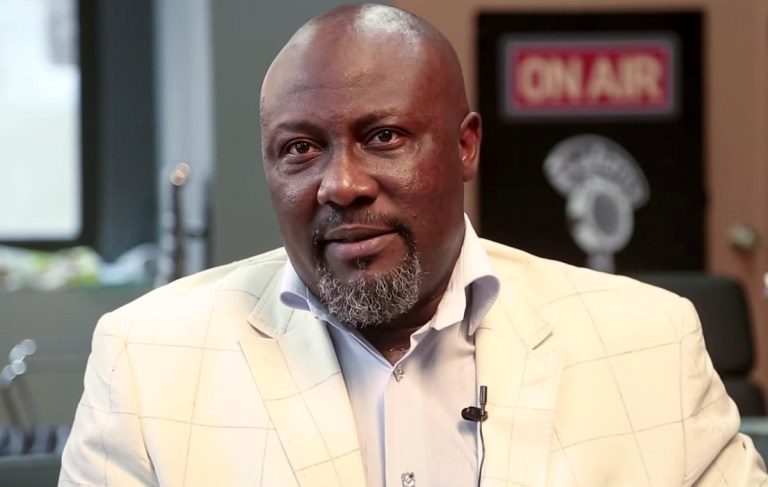The Special Adviser on Economic Matter to the President, Dr. Tope Fasua, has said that President Bola Tinubu’s reforms in strengthening the Naira was targeted at driving the Made-in-Nigeria initiative, calling on Nigerians to reposition in critical sectors of the economy.
Speaking at a webinar with the theme: ‘Nigeria’s reform path and transition Gaps: The economics of renewed hope’ hosted by Proshare, he said the current administration under Tinubu is poised at encouraging Nigerians to produce more, and meet the local needs.
“If we have 200 million people, that is a great domestic economy that can be served by us for us and that is where we are going.
“If you give us one more year of guiding these reforms, we will have a very different story to tell. No nation has been able to eradicate poor people in their country but I think we will give it a good shot in Nigeria,” he said.
He expressed that the current administration has taken very important reforms, driven critically by Tinubu.
He maintained that it takes bold decisions by Tinubu to remove subsidies on fuel and unification of the foreign exchange reforms which were necessary.
Fasua, however, stated that poverty numbers can be questioned, maintaining the possibility that these reforms by the government can also hike poverty numbers in Nigeria.
“However, in the first two years, the government has not done too badly. We seem to be on a trajectory. Whether we look at it from an angle of slight increase in foreign reserves or better rating by rating agencies or stability in the value of Naira or even trade.
“For almost two years now, we have recorded a positive trade surplus. The last time, it was between $16-$11 billion in 2024. In the first half of this year, we recorded about $5billion. Which means this year may be better.
“There were reforms that repositioned a few sectors and one of them is the petroleum sector where we have become a net exporter of refined products than we import. This has also affected our import and export mix indeed.
“For example, we used to import $25 billion worth of petroleum and the last number I checked December 2024, I think it is about $10 billion and the target is zero because we should be able to produce as much as we need ourselves of refined petroleum in this country.
“On export side, we are beginning to sell more of our crude oil locally than exporting them.”
He declared that this is not the time to change policy, stressing that this is the time to guide policies.
To guide these policies, he highlighted that, “FG to disseminate a lot of information to let the people of Nigeria to let them know that nobody is out to punish anybody and this a time for repositioning- as there are opportunities everywhere and it is time for considerable transition change.”
He said some sectors such as the oil and gas sector are positioned and some local entrepreneurs are doing great in fashion, among others due to a 40 per cent decline in importation.
“We had about $53-54 billion in terms of export and on the flip side, we had about $41 billion of imports. Unlike before, it used to import like $50billion and struggled to export maybe $40-45 billion,” he said.
He added further of reposition in agriculture sector, catering businesses, Partner and the West Africa Tax Leader at Deloitte, Mr. Yomi Olugbenro, stated that the economy in the last two years has been challenging, stressing that Nigeria economy in first half of 2025 has witnessed transformative, bold and daring reforms to re-correct a lot of macros and reset the economy.
“It obviously came with the usual short-term pain which you cannot avoid or eliminate in the real sense of it considering the depth and the complexity of the issues that are being addressed.
“We are going through some tough moments and I think the worst seems to be over and things are stabilising. What we really need to do is to latch on the solid foundation we have now and quite honestly, I think what will happen over the second half of this will essentially be determined by what additional steps they will take to one stay the course.”
He urged on the need for these reforms by the government to trickle down the household and touch individuals.
“For me, the journey to getting the citizens and Nigerians really feel the impact is important because taking these bold steps are one step in the journey.
“If you look at the subsidy removal, unification of the foreign exchange market, among others, everyone seems to be in alignment that these are necessary but how do we begin to engage our government at all tiers to make sure those additional funds and resources are channel to infrastructural development and invested in human capital development and ensuring economy rebound. I think we are on a solid footing.
Chief Economist/Managing Editor Proshare Nigeria, Teslim Shitta-Bey, backed Olugbenro to acknowledge bold economic reforms by the government such as the removal of fuel subsidy, removal of the foreign exchange subsidy.
He noted that the macroeconomy has witnessed transformational performance, maintaining that the micro-economy is still a challenge.
He said the FG increased the minimum wage rate to N77,000 but the double-digit inflation rate through the removal of fuel subsidy is impacting on the new minimum wage Tinubu approved last year.


